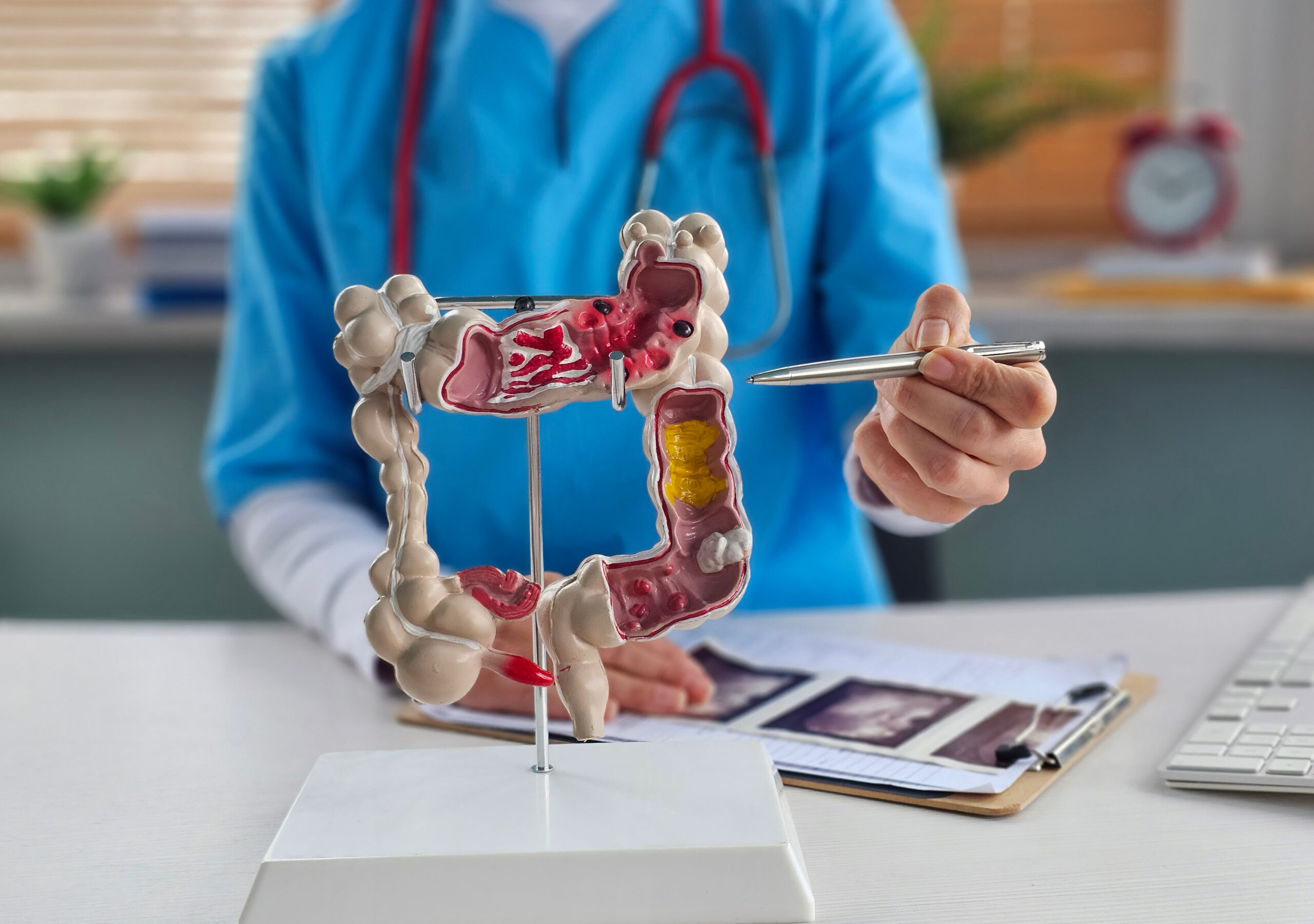Cancer is Complicated. Your Care Shouldn’t Be
Digestive, or gastrointestinal (GI), cancers affect the organs involved in digestion — including the esophagus, stomach, liver, pancreas, colon and rectum. Because these cancers vary in how they develop and respond to treatment, it’s essential to have a team of specialists who understand their unique complexities.
We specialize in treating the following types of digestive cancer:
- Colorectal cancer
- Esophageal cancer
- Gastric cancer, also known as stomach cancer
- Liver cancer, also known as primary hepatic cancer
- Pancreatic cancer
- Small intestine cancer
- Anal cancer

About Our Digestive Cancer Care
Each care plan will vary based on the type of digestive cancer you have, ensuring you receive comprehensive, collaborative care from our team of experts.
Anal cancer starts in the tissues of the anus and is often linked to HPV infection. Symptoms may include rectal bleeding, pain, itching, and changes in bowel habits. Treatment typically involves radiation with chemotherapy, sometimes surgery or immunotherapy, along with supportive care.
Colorectal cancer, affecting the colon or rectum, is one of the most common digestive cancers we treat. While it’s traditionally seen in older adults, cases are rising in young people, often in their 30s or 40s. These tend to be more aggressive, making early detection and expert care critical.
Esophageal cancer begins in the esophagus and is most common in men over 60. Symptoms may include difficulty swallowing, chest pain, unexplained weight loss, and chronic heartburn. Treatment options include surgery, radiation therapy, targeted therapy, and immunotherapy.
Gastric cancer, or stomach cancer, is most common in people over 65. Symptoms include indigestion, stomach pain, nausea, weight loss, and feeling full quickly. It’s diagnosed through imaging and lab tests, with treatment options like surgery, chemotherapy, radiation, and targeted therapies.
Liver cancer, also known as primary hepatic cancer, is a type of cancer that develops in the liver and is often linked to chronic liver disease. The most common type is hepatocellular carcinoma (HCC).
Pancreatic cancer begins in the tissue of the pancreas and symptoms may not appear until the cancer has spread, making early detection difficult. Common signs include abdominal or back pain, weight loss, jaundice, and new-onset diabetes. Treatment may involve surgery, chemotherapy, immunotherapy, or palliative care to improve quality of life.
Small intestine cancer is a rare disease affecting the part of the bowel responsible for digestion and nutrient absorption. Symptoms include abdominal pain, nausea, weight loss, and blood in the stool. Treatment may involve surgery, chemotherapy, radiation, or therapies to relieve symptoms.



